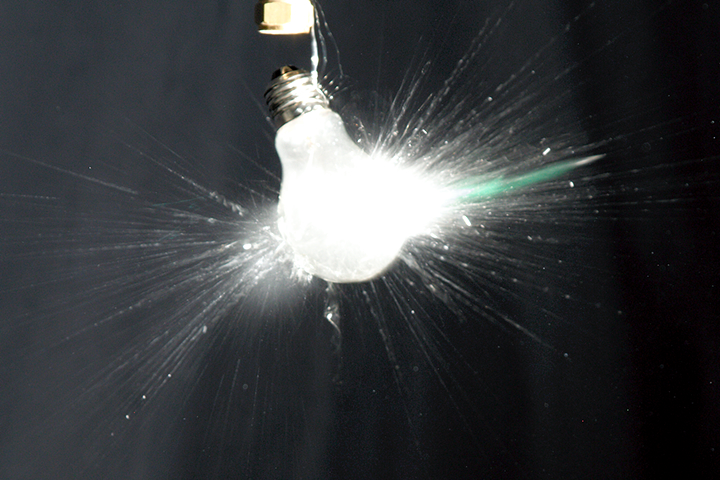[contextly_auto_sidebar]

Photo by gipukan, Flickr creative comms (Rob Gipman).
It is not unusual for judges working in totalitarian dictatorships to decide their cases on the contents of sealed brown envelopes handed up to them by government lawyers. Secret evidence is dodgy because it strikes at the heart of natural justice and erodes public confidence in the independence of the judiciary.
In the UK, such troubling mechanisms have been traditionally reserved for national security cases. After all, fair, open justice has very deep roots in the English legal system and is a healthy indicator of democracy.
However, recent changes in the Immigration Tribunal have threatened these time-honoured principles. The Immigration Act 2014 has given the government greater powers to decide who gets to appeal while they are still in the UK and who doesn’t (the so-called ‘deport now, appeal later’ provisions). The grounds of appeal have shrunk from seven to three. All this is leading to a rising tide of litigation, mostly in the form of judicial reviews, where judges are being asked to find that measures like these are unlawful and unfair.
The latest legal challenge concerns a controversial rule that gives immigration judges the power to consider secret evidence in appeal hearings. The judgment is highly relevant to the broader debate about fairness in the immigration tribunals.
In Immigration Lawyers Practitioner’s Association (ILPA) v Tribunal Procedure Committee & Lord Chancellor [2016] EWHC 218 (Admin), Mr Justice Blake decided that the secret evidence rule is not inherently unfair. However, it is of very limited application and should only be used sparingly. Showing his deep discomfort with the idea of secret hearings, the judge called on the tribunal presidents to issue guidance on how the rule should operate.
The law
Since coming into force on 20 October 2014, Rule 13(2) of the Immigration Tribunal’s Procedure Rules has given immigration judges the power to consider secret evidence where disclosure would be likely to cause ‘serious harm’ to ‘a person’ and it is in the interests of justice and proportionate to keep the evidence secret.
ILPA argued that the rule was unlawful because it was incapable of producing a fair outcome and did not fulfil the purpose for which it was created and fell outside of the scope of the parent legislation it was made under. (Earlier last year, similar arguments had successfully defeated the government’s ‘fast track’ system, which processed asylum claims of detained persons within a very tight timetable of days. The fast track rules were found to be ‘structurally unfair’ by the High Court).
Mr Justice Blake, himself a former President of the Upper Tribunal, disagreed. He based his decision on what higher judges have said about the principle of fairness.
The starting point is that ‘all justice shall be done openly and that it shall be done only after a fair hearing’. But what fairness requires varies according to context.
In appeals against Freedom of Information Act 2000 decisions, part of the hearing may be ‘closed’ to the person requesting the information, because disclosure of the information to them would defeat the whole purpose of the appeal. Fairness is achieved in the Information Rights Tribunal by the presence of the Information Commissioner, a neutral party, in the closed hearing and by the gist of what occurred being explained to the appellant.
In the immigration context, higher courts have stated that in asylum claims, “only the highest standards of fairness” will do. More generally “any material that the Secretary of State seeks to rely on before the Tribunal in support of the decision … ought to be disclosed to the appellant and his representatives”.
Findings
Although the secret evidence rule risked grave unfairness, the Judge found that the system as whole was not entirely unfair as it contained sufficient safeguards.
Firstly, the rule would not be open to abuse by Home Office. Applications for secret evidence to be considered that were unsupported by compelling evidence would be dismissed.
Secondly, the rule allowed for the appellant’s lawyer to see the secret evidence but not for them to disclose it to the appellant or anyone else. While this may put the lawyer in an incredibly awkward position, professional conduct rules do not prevent this procedure, which may be in the best interests of the client.
Thirdly, the Judge noted that there was no evidence that the rule had been used since its introduction on 20 October 2014. It was probably not going to be used at all, except on rare occasions.
Even if a witness tells the Home Office that they are being forced to give false evidence due to fear of reprisals from an appellant, a secret hearing would not be justified. The evidence of such allegations should be tested openly.
So, is it lawful for secret evidence to be heard in immigration appeals?
Yes.
Is the rule that allows secret evidence likely to be used often?
No.
Although ILPA’s challenge was dismissed, the judgment strongly endorses the need for open justice. Secret evidence should be banished to the margins of immigration tribunal practice, assuming that we are told when Immigration Judges are using the power. The rules do not impose any duty on Judges to inform anyone when they have relied on the rule, and detailed guidance to Judges is badly needed.
Mr Justice Blake was speaking from experience. Before becoming a Judge he was once appointed as a ‘special advocate’ (that is, an independent lawyer who is allowed to hear secret evidence and who assists the tribunal in closed hearings by representing the appellant’s interests). The procedure has been found to be a dangerous and very limited safeguard against the grave risk of unfairness in ‘closed justice’ systems.
An earlier version of this article appeared on Ben’s blog: Law, mostly.






